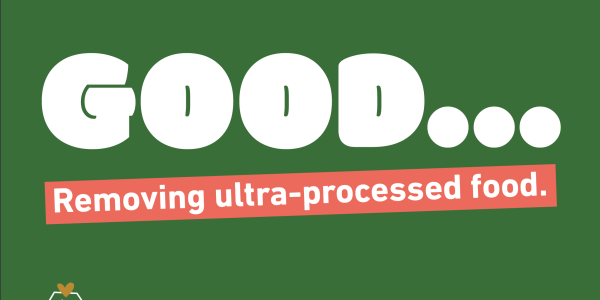Dear Marcus (and advisors)
Food poverty is only ever about the lack of good food – poverty is something else altogether. Charity offers options but is never a solution.
Covid and your intervention has raised the temperature of the food aid debate and this is welcome. Throughout the initial Covid response, better food was elevated as a priority, largely due to the activity of chefs who joined in due to restaurant closures – they wanted to cook meals! Then you joined the debate, and with your team, are addressing a number of food related issues.
Recent history teaches us that celebrity campaigns have a relatively short window of time in which to influence – think Jamie Oliver. Jamie started his campaigns when we had a Labour Government. You don’t have that advantage. The Conservatives who created this mess are by instinct and governance, libertarians, so beware. At the moment, you have Boris running scared, this will change and whatever policy difference you make will probably need to be quick.
We have spent 14 years in the good food/food aid space and have never moved from our conviction of feeding people good-fresh-meals. Any compromise here, is to deny hungry people their rights.
In the context of writing to you – 14 years on, this is what we have learnt and know.
Food poverty: Income matters but good food more so:
You have been poor, and you will know the importance of having a meal to eat.
Unfortunately, most who are now in the position you were once in, don’t have the option of a meal, instead they are offered mostly random-poor-food-products that do not make up a meal. This is by design and here is the tricky bit – Fareshare, whom you support, are the largest supplier into this poor-food-product movement. Just this week, in an Observer article about you, the Fareshare CEO claimed they were sending out 2 million meals. If this was so, and the meals were targeted, there would be no food poverty. Put simply, the Fareshare model is not about feeding people well or people’s dignity, it is about moving food products around at scale and its primary relationship is with suppliers. If you are interested, we and others, are happy to provide you with an insight of what it is like to be a Fareshare customer.
For the record, we estimate Fareshare are overclaiming their impact by at least 60%. To overclaim on this scale, makes the plight of hungry people that much worse.
Now onto the money. Food aid organisations may have already told you, food poverty is not about the lack of food, it’s about the lack of income. In the year since Covid struck, the Government have given a £20 a week increase to struggling Universal Credit households. In the same year, Fareshare and others have stated food poverty has more than doubled, it’s therefore clear that £20 has made no difference to food poverty whatsoever. This begs the question, what sort of increase in income are the campaigners requesting to make any sort of difference? Is it £50 or £100 a week, who knows? A £50 a week increase would cost the Government roughly £300m+ a week, so that is not going to happen, and £20 a week has failed to impact the problem, so has this argument run its course? We will see.
The Government may well make a short-term offer to dampen the current protest, but anything long term is not in their political DNA.
To draw this approach to a logical conclusion, it’s time for those campaigning for more income to name and cost their price and present it to the Government. Maybe they will ask you/your team for help, we hope so, because whilst this argument hangs around, it is in the way of feeding people well.
Our view, it is a sideshow with other motives. When people are hungry, access to good-healthy-meals matters most, then the money problem follows on.
The Right to Food does not go far enough:
Maybe you and your team are already part of the Right to Food discussion. Any movement towards vulnerable people getting a right to where, when and what they eat, is a move forward. But this discussion and debate has been around for 20 years or so and still no one has thought to insert the word ‘good’ into any ask made of the Government. Why for example, is the ask, not the Right to good food rather than simply food. Any subsequent rights-based model will have functions such as the food must be adequate in provision, cheap enough to buy and sustainable in supply, but if the same food is not good enough to protect people’s health and wellbeing, what is the point? And will it be much better than what we have now? Again, we will see.
There is an interesting comparison to make here. Those who are campaigning point the finger at the Government and talk about the lack of rights. However, food aid has never been a rights-based service. Now over 12 years old, the main food aid offer still denies most hungry people the right to choose their food or offer them any right to quality. This has been by design and is delivered by some of the same people pointing the finger at Government. Maybe it’s time to get the rights-to-good-food-aid house in order first, before pointing towards others and maybe you and your team can again help them along the way?
School Food: What was offered was no different to what food banks offer
The Chartwells parcel was a disgrace and their thought-through second attempt is not much better, so let’s understand why.
The company is not run by anyone with food expertise and is solely profit-led. They don’t do ‘social’ and clearly lack the compassion to make a difference to people’s lives – they make profit. In short, they are typical school food provider. They promise head teachers or school managers something to turn their heads, then often under-deliver to strip out profit. This is business, where profit exceeds quality, so it is to be expected.
However, in the charitable world, the reverse should happen, and quality should exceed cost, yet unfortunately, there is no difference whatsoever. When the shockwave hit last week and everyone jumped on the bandwagon, including those who know nothing about school food (see many within the Food Foundation letter you signed) It was all ‘this is terrible’ – ‘this should never happen’ etc and whilst the shock was right, other considerations are to be made here. Some of those who signed the Food Foundation campaign letter and interestingly, the Food Foundation themselves, have stayed steadfastly silent about the quality of food offered to hungry people as if it is in some way different to the food offered to hungry school children out of school hours. It’s not, and the Chartwells approach is no different to the food aid offer that has been offending people’s dignity for over a decade – so why pick now to go live with their shock? Was it because of you and the opportunity you offer to them or was it because they have, 10 years on, changed their minds? Time will tell on both counts.
Of course, some may think the difference is that Chartwells are being paid and yes there is a small difference, but even so, where did the Government get the idea for these boxes from? And what model did Chartwells copy? Is the answer to both…food bank parcels – coincidence? You decide.
Chartwells have made changes (they have a lot to lose) and the Government may well concede something else, but will any of it mean hungry people are fed well? When again the finger is being pointed at others, remember the part most food aid agencies continue to play in influencing the food-indignity hungry people have to face every day.
For too long, food aid has concentrated on food insecurity and other than much more poor-food being funnelled in, very little has changed.
80% of hungry people never use a food bank because the food is so poor, so how can these people be helped? The simple answer is feed-them-well.
Food aid needs a plan, and the plan needs to start from and concentrate on the health and dignity of people who are hungry now. More charity is nothing more than a sticking plaster and there are other food-based solutions are available that move on from charity. Although, from our experience, the current group of food aid charities will do all they can to steer away from good-food solutions and towards their own aims.
Many agencies are ready to feed hungry people well and again, some have a plan to deliver the necessary change. Maybe it will be of interest to you and yours?
You will not be able to solve poverty, but you have a stage and opportunity to make a difference in influencing others to provide meals and only good food, which in turn will help to stop food poverty – All the best to you.
Food Poverty Team at Can Cook/Well-Fed.


